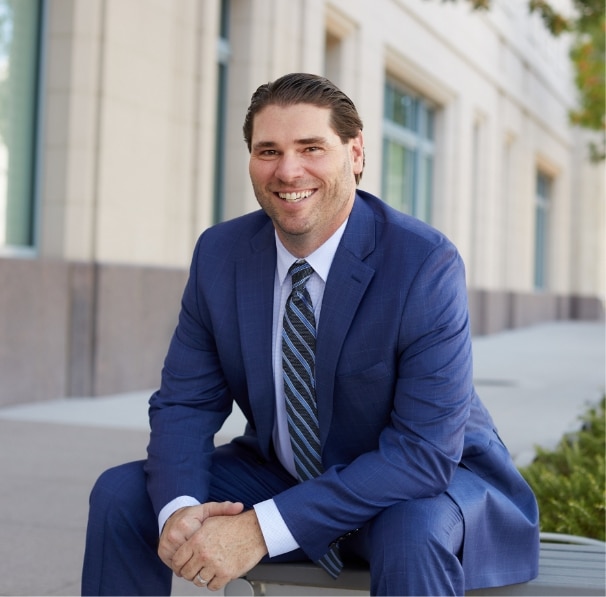The statute of limitations for nursing home abuse lawsuits in Nevada is two years from the date of when the injury was discovered, or reasonably should have been discovered. If you suspect your loved one has been abused or neglected, you may want to speak to an attorney who has experience handling this type of case. Experienced nursing home abuse lawyers will be best able to advocate for your loved one and hopefully resolve the situation as quickly as possible.
Table of Contents
Toggle
It can be difficult to tell if your loved one is the victim of abuse at a nursing home. They may be reluctant to tell you about it out of pride or even a fear of retribution after you start asking questions of the staff. In the case of some abused nursing home residents, the signs of abuse may not even come to anyone’s attention for years, perhaps going unnoticed until after the death of the resident.
Types of Abuse
Nursing home abuse includes physical abuse such as beatings or mistreatment. It can also include neglect, such as inadequate access to food, water, clothing, shelter, medical treatment, and a safe environment. Sometimes there are allegations of sexual abuse of nursing home residents by staff members. Isolation abuse happens when a nursing home resident is cut off from all socialization. Finally, there is financial exploitation, which is when a staff member misuses a resident’s finances or medicare funds.
A nursing home negligence lawyer will tell you that there are several avenues of approach for your nursing home abuse lawsuit. You may sue for negligence, battery, false imprisonment, breach of contract, and intentional infliction of emotional distress. Depending on the type of abuse or neglect you believe your loved one has been subjected to, your attorney may use any combination of these avenues to build the best case for you and your family.
Why Is There a Statute of Limitations for Nursing Home Abuse Lawsuits?
Though it may seem inconvenient to have a time limit applied to filing a lawsuit for nursing home abuse, the law is actually intended to make sure that a suit will be filed in a timely manner, while evidence remains to be used. Unfortunately, in a nursing home abuse lawsuit, many of the witnesses are older, and the longer you wait to file a suit, the more likely it will be that witnesses forget specific details of the alleged abuse. In some cases, they may even pass away before giving testimony. That is one of the reasons, if you suspect nursing home abuse in Nevada, you may want to discuss it with someone sooner rather than later. The statute of limitations for nursing home abuse lawsuits also helps to prevent evidence from getting cleaned up, destroyed, or otherwise lost.
When Does Time Begin to Toll for the Statute of Limitations?
The statute of limitations for nursing home abuse lawsuits begins on the day that an injury is discovered or reasonably should have been discovered. If you suspect abuse, or negligence, or have seen signs that could point to the abuse of your loved ones who are in a nursing home, a Las Vegas nursing home negligence lawyer will be able to help you decide what to do next.
One thing that your attorney is almost certain to ask about is whether the nursing home staff concealed any act, error, or omission regarding the injuries or neglect of your loved one. If they did, your statute of limitations time doesn’t begin until after the discovery has been made. Some types of abuse may show up quite a bit later.
In the case of financial exploitation, for example, you may not see any signs that this type of abuse is happening while your loved one is still alive. Such abuse may not show up until you are going through probate and trying to resolve your loved family member’s final wishes.
Can You Sue After the Statute of Limitations for Nursing Home Abuse Expires?
In some cases, you can sue after the statute of limitations for Las Vegas nursing home abuse has expired. For example, if the injuries your loved one received didn’t appear until later, or if the nursing home you entrusted with your loved one’s care covered up or concealed the evidence of abuse or neglect.
You may have multiple options available to you after a death in a nursing home. Wrongful death carries the same two-year statute of limitations, but medical malpractice may apply to your particular case and that can extend the statute time to three years. If, for example, the nursing home physicians, failed to diagnose an infection that contributed to the death of your loved one, you may be able to sue for medical malpractice along with abuse.
Don’t forget that any time during which the act, error, or omission is concealed doesn’t count toward the statute of limitations. It is reasonable to expect that someone who is abusing the elderly in an official capacity will take the time and effort to conceal their crimes, or that a nursing home who have found staff members committing such crimes may make an effort to conceal them in order to avoid future lawsuits.
Often, families must entrust the care of older loved ones to nursing homes. It isn’t ideal, but sometimes they require medical care or oversight that they cannot provide because of the skill needed to give the appropriate care or other obligations. When that trust is breached, unfortunately, it is often at the expense of someone who is older, more vulnerable, and who may be afraid to report the abuse. Memory care patients are sometimes unable to even alert a loved one that abuse or neglect is taking place. Therefore, it is important for family members to understand the signs to watch out for and the statute of limitations for nursing home abuse lawsuits to help protect their loved ones.




